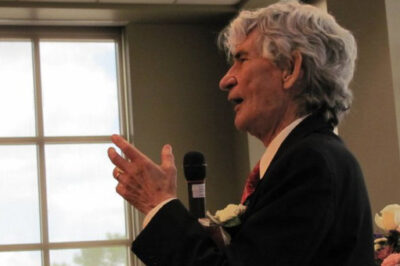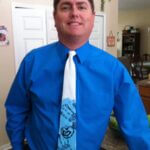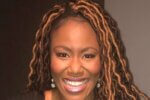Editor’s Note: The following is an excerpt from Cecil Murphey and Gary Roe’s 2012 book, Not Quite Healed: 40 Truths for Male Survivors of Childhood Sexual Abuse.
I’m not quite healed, but I am being healed.
My name is Cecil Murphey, although everyone calls me Cec (as in cease). In the fall of 1985, I began to face my sexual and physical assaults. I’m still in the process. I’m closer to total victory, but I’m not quite healed.
Someone could counter with, “You’re a slow learner,” or “You haven’t followed Jesus closely enough.”
I don’t try to answer such charges. I’ve moved as rapidly as I know how and don’t feel I have to justify anything. After more than twenty years, when I talk about my healing I say, “I’m almost healed.”
I wish I could say that I’m totally healed; that would be a lie. This much I can say: I’m as straightforward and transparent as I’m capable of being. In the recovery process, I’ve searched relentlessly for total healing. I don’t know if that labels me quick or slow, truly open or slightly self-deceived.
Some men heal quicker than others do—we know that. But I challenge the statement of anyone who boasts of total healing from sexual abuse in eight months or a year. Or even 10 years.
I’m a survivor of childhood sexual abuse, and I’ve worked for several years with other former victims of sexual molestation. All of us who struggle with our past speak of a process—a long, long process. It’s also an ongoing battle.
* * *
A few months ago I participated in a seminar in which one of the plenary speakers was a pastor who spoke of his abuse and that it had once made him afraid to allow anyone to get close. He said God had healed him.
As I listened, this thought raced through my brain: “He’s still not going to let people get close.” Then I thought perhaps I was being judgmental and silently chastised myself.
A few weeks later, another survivor and I had coffee together. He had also attended that plenary session. Without my saying a word, my friend referred to that pastor. “He shouldn’t have been up there speaking,” he said. “He’s not healed enough himself.”
How did both of us—independently—come to that same conclusion? I can’t give you three reasons or any concrete analysis. Yet both of us sensed he spoke more about his hopes than his reality.
* * *
I understand the desire for complete emotional healing. In fact, one of the things I heard myself saying after two years of facing my abuse is, “I should be healed by now.” When I spoke those words, I didn’t understand the pervasiveness of molestation. I wanted to be completely free from my past abuse and to have the memories wiped away.
It doesn’t work that way. It is a process—and the word process means that it doesn’t happen quickly. Or as I said in one seminar, healing from abuse is a process and not an event.
First, we need to realize that sexuality involves our total selves—mind, body, emotions, and spirit. God created us that way and sexuality is a powerful force in our lives for good or for evil.
Second, our abuse took place in secret, and it happened when we were young and innocent. We lived with our hidden anguish for years. I turned fifty before my memories flooded over me and forced me to learn to cope with my painful childhood. Gary was in his mid-forties before flashbacks revealed the abusive childhood he had endured.
Here’s a statement I’ve adapted from VoiceToday, an organization that works with survivors of sexual molestation.
A victim of murder feels no more pain; A victim of childhood sexual abuse feels pain for the rest of his life.
Anyone may challenge that last phrase, “for the rest of his life,” but I believe it’s true. Terrible things were done to us and it takes a long time—years—the rest of our lives—to work through the process and to undo the damage. All our lives is accurate because the damage is deep, painful, and we lived with our wounds a long, long time.
Deep. Painful. Those two words express why this is such a long journey. A major reason is that we continue to uncover layers of our inner lives tainted by the abuse.
* * *
Gary
Not only is healing an ongoing process, but it demands courage to survive the barrages of hurt, sorrow, and self-accusation. The more we trudge forward, the stronger we become. The scars are subterranean and insidious but there is healing.
At the beginning we may assume full healing is imminent—which I did—because we’re unaware how severely we’ve been damaged or don’t realize that our wounds have been festering for years.
At our core, we’re sexual creatures, male and female. This is part of being created in the image of God. When others abuse us sexually, they touch us at the center of our being. Everything becomes skewed and produces a ripple effect that spreads through our entire personhood. The abuse alters the way we view ourselves, others, God, and life itself.
Here are two verses that help me understand this. “Run from sexual sin! No other sin so clearly affects the body as this one does. For sexual immorality is a sin against your own body. Don’t you realize that your body is the temple of the Holy Spirit, who lives in you and was given to you by God? You do not belong to yourself” (1 Corinthians 6:18–19).
As I read Paul’s words, it says that sexual sin is different from other transgressions because it has more pervasive, lasting effects than other failures.
How could healing not be difficult, excruciating, and time-consuming? We need to fight, not just for ourselves, but for our families and all the others around us who’ve been touched by the abuse we endured.
“I want to become a warrior against abuse,” I told God, and invited him to use me in the war to fight such an invidious evil. The bigger picture of contending for other kids who couldn’t stand up for themselves became a major driving force behind my desire to heal.
But I want to be clear: True, deep healing is spiritual warfare. Sometimes our learned and long-established behavior is our enemy. We have to fight our natural resistance. It’s hard work, but well worth it, not just for us, but also for everyone we love and care about.
Abuse causes most of us to end up with little self-esteem (although some become braggarts or bullies to cover it). We were overpowered, and control often remains a big issue—fighting for it or surrendering to those who threaten us by their words or presence.
Because someone we trusted betrayed us, many of us are unable or slow to believe others. We may freeze when someone unexpectedly touches us. Some of us slide into substance abuse to deaden the pain. Sexual dysfunction of some kind is common.
This isn’t an exhaustive list, but I mention these because they’re symptoms of long-term issues. Even to be aware of them isn’t a cure, but it’s like a doctor analyzing our symptoms and prescribing the medicine.
Cecil Murphey has written or coauthored more than 100 books, including the autobiography of Franklin Graham, Rebel With a Cause, and the New York Times best-seller 90 Minutes in Heaven.
Gary Roe has been in full-time ministry for 30 years, serving as a college minister, a church-planting missionary in Japan, a pastor in Texas and Washington. He currently works as a hospice chaplain and interim pastor in Central Texas.








Leave a Comment
You must be logged in to post a comment.